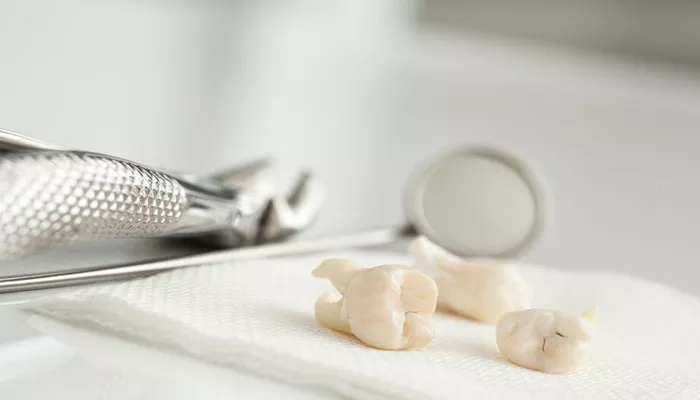Partial dentures are a valuable solution for individuals who have lost some of their natural teeth. They not only restore the ability to chew and speak properly but also enhance the aesthetic appearance of the smile. However, like any dental appliance, partial dentures require proper care and maintenance to ensure their longevity and functionality. Neglecting this care can lead to complications such as gum disease, discomfort, and premature wear of the dentures. This article provides a comprehensive guide on how to effectively care for your partial dentures, ensuring they remain in optimal condition for years to come.
Understanding Partial Dentures
Partial dentures are removable dental appliances designed to replace one or more missing teeth. They consist of artificial teeth attached to a gum-colored base that fits snugly against the gums. The base is typically made from acrylic or metal, depending on the specific needs of the patient. The primary purpose of partial dentures is to restore functionality and aesthetics, allowing individuals to eat comfortably and smile confidently.
Types of Partial Dentures
Acrylic Partial Dentures: These are made from a type of plastic and are often used as temporary solutions.
Metal Partial Dentures: These feature a metal framework that provides added strength and durability.
Flexible Partial Dentures: Made from a flexible material, these dentures offer comfort and a more natural look.
Understanding the type of partial denture you have is crucial for determining the appropriate care methods.
Daily Care Routine for Partial Dentures
Establishing a daily care routine is essential for maintaining your partial dentures. This routine should include cleaning, handling, and storing your dentures properly.
Removing and Rinsing Dentures
When removing your partial dentures:
Prepare a Soft Surface: Always remove your dentures over a soft surface or towel to prevent damage if they slip from your hands.
Rinse Your Mouth: Before removing the dentures, rinse your mouth with water to loosen any debris or food particles.
Gently Rock the Denture: Use both hands to grasp the denture gently, applying equal pressure on both sides. Carefully rock it back and forth to release the seal before lifting it out.
Cleaning Your Partial Dentures
Proper cleaning is vital for preventing plaque buildup and maintaining oral hygiene:
Rinse Immediately: After removing your dentures, rinse them under cool or lukewarm water to remove food particles.
Use a Soft Brush: Clean your dentures using a soft toothbrush or a specialized denture brush. Avoid using regular toothpaste as it can be too abrasive.
Choose Appropriate Cleaners: Use non-abrasive denture cleaners or mild soap. Avoid products containing bleach or whitening agents that can damage the denture material.
Soak Overnight: Place your cleaned dentures in water or a denture-soaking solution overnight to prevent them from drying out and losing shape.
Handling Your Dentures with Care
Handling your partial dentures carefully can prevent damage:
Wash Your Hands: Always handle your dentures with clean hands to avoid transferring bacteria.
Avoid Excessive Force: Do not use excessive force when inserting or removing your dentures; this can cause bending or breaking.
Store Properly: When not in use, keep your dentures in a case filled with water or soaking solution to maintain moisture.
Weekly Maintenance
In addition to daily care, incorporating weekly maintenance practices can enhance the longevity of your partial dentures.
Deep Cleaning Techniques
Soaking Solutions: Use denture-cleaning tablets according to package instructions once a week for deeper cleaning.
Vinegar Solution: A mixture of equal parts water and vinegar can be used for soaking once a week to help remove stains and odors.
Inspecting Your Dentures
Regularly inspect your partial dentures for signs of wear or damage:
Check for Cracks: Look for any visible cracks or changes in shape.
Assess Fit: If you notice discomfort or looseness, consult your dentist for adjustments.
Caring for Your Oral Health
Maintaining good oral health is crucial when wearing partial dentures:
Cleaning Your Mouth
Brush Remaining Teeth: Ensure you brush your natural teeth at least twice daily with fluoride toothpaste.
Clean Gums and Tongue: Use a soft toothbrush or gauze to clean your gums and tongue gently, promoting overall oral hygiene.
Rinsing with Salt Water
Using warm salt water as a mouth rinse can help keep gums healthy:
Daily Rinse: Rinse with warm salt water daily, especially after meals, to reduce inflammation and promote healing in sore areas.
Addressing Common Issues
Wearing partial dentures may lead to some common issues that require attention:
Sore Spots
If you experience sore spots due to pressure from the denture:
Remove Dentures Temporarily: Take out your partials and allow sore areas to heal.
Consult Your Dentist: If soreness persists, visit your dentist for adjustments.
Changes in Fit
Over time, changes in the fit of your partial denture may occur due to bone loss or changes in gum tissue:
Regular Check-ups: Schedule regular dental visits (at least every six months) for professional cleaning and adjustments.
Relining Options: Discuss reline options with your dentist if you notice significant changes in fit over time.
Long-term Care Considerations
To ensure the longevity of your partial dentures, consider these long-term care strategies:
Regular Professional Care
Biannual Check-ups: Regular visits allow for professional cleaning and necessary adjustments.
Denture Relining: Over time, relining may be needed due to changes in jaw structure.
Lifestyle Adjustments
Adopting certain lifestyle habits can also support denture care:
Avoid Hard Foods: Initially avoid hard foods that could damage new dentures until you adjust.
Stay Hydrated: Drink plenty of water to prevent dry mouth, which can affect denture comfort.
Conclusion
Caring for partial dentures is essential not only for their longevity but also for maintaining overall oral health. By following a consistent daily routine that includes proper cleaning, handling, and regular dental check-ups, individuals can enjoy the benefits of their partial dentures without complications. Remember that if you experience discomfort or notice changes in fit, consulting with your dentist promptly will help address these issues effectively. With proper care, your partial dentures will serve you well for many years, allowing you to eat comfortably and smile confidently.
Related topics:

